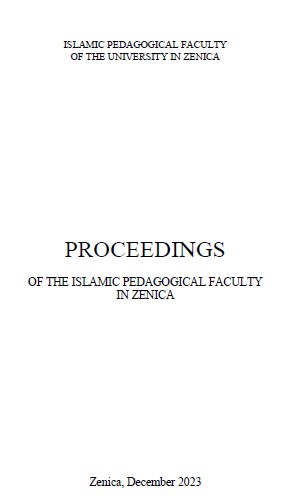NEKA ZAPAŽANJA U VEZI S PROŠIRENIM GLAGOLSKIM ADVERBIJALIMA UZROČNOGA ZNAČENJA U SAVREMENOME TURSKOM JEZIKU
OBSERVATIONS REGARDING EXTENDED CAUSATIVE VERBAL ADVERBIALS IN THE MODERN TURKISH LANGUAGE
Author(s): Edina Solak, Mirza Bašić, Amina HadžimejlićSubject(s): Comparative Linguistics, Turkish Literature, South Slavic Languages, Theory of Literature, Turkic languages
Published by: Islamski pedagoški fakultet Univerziteta u Zenici
Keywords: Turkish language; Bosnian language; causative adverbial phrases; ablative case suffix; initial noun clauses;
Summary/Abstract: In the grammatical structure of the Turkish language, the ablative case suffix can also in certain contexts express causation. Thus, causative adverbial phrases can be derived by adding the ablative case suffix to noun phrases formed during the process of nominalization by transforming the initial clauses with finite predicates, where the function of the correlative is marked by verbal nouns ending in -DIk / -(y)AcAk. Based on concrete (con)textual examples, this paper aims to analyze grammatical and semantic structures of causative adverbial phrases derived by adding the ablative case suffix to noun phrases formed during the process of nominalization by transforming the initial clauses with finite predicates. A contrastive analysis, which also analyzes semantically similar syntactic structures in the Bosnian language, is used to indicate similarities and differences within syntactic structures expressing causation in these two genetically and typologically different languages. The basic sources of the analysis are the following novels by Kemal Tahir: Esir Şehrin İnsanları, Esir Şehrin Mahpusu and Yol Ayrımı.
Journal: Zbornik radova Islamskog pedagoškog fakulteta u Zenici
- Issue Year: 2023
- Issue No: 21
- Page Range: 377-398
- Page Count: 22
- Language: Bosnian

